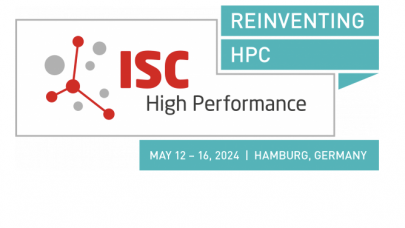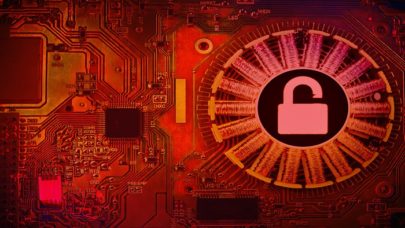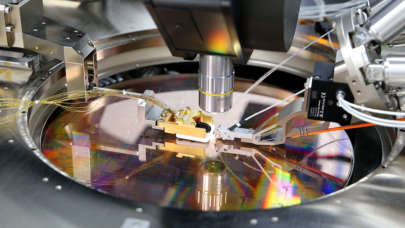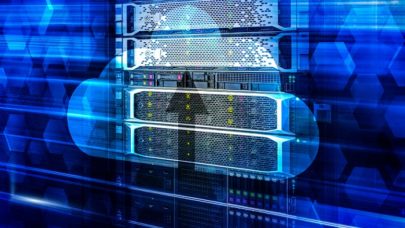Delivering high performance computing as a service comes with a set of challenges, both technical and social. In this article, Wolfgang Gentzsch and Burak Yenier discuss the various aspects of the service model, the people that need to be involved in the process, and the challenges faced when executing workloads on remote HPC resources. They will also describe an open HPC-as-a-Service experiment that they have come up with to bring together industry end users, resource providers, software providers, and HPC experts.
 The technology components of HPC-as-a-Service that enable multi-tenant, remote access to centralized resources, and metered use are not unfamiliar to this community. However, as service-based delivery models take off, with its promise of easy access to pay-per-use computing, our users have been mostly on the fence, observing and discussing the potential hurdles to its adoption in HPC.
The technology components of HPC-as-a-Service that enable multi-tenant, remote access to centralized resources, and metered use are not unfamiliar to this community. However, as service-based delivery models take off, with its promise of easy access to pay-per-use computing, our users have been mostly on the fence, observing and discussing the potential hurdles to its adoption in HPC.
Even with the challenges of data privacy, incompatible software licensing models, and a dozen other potential roadblocks, it’s time we dip our toes in the water and figure out how to achieve the benefits of service-based delivery. How far are we from an ideal HPC-as-a-Service model? At this point, nobody knows.
What is fairly certain is that we now have the technology ingredients to make it happen. To glue it together into a coherent end-to-end process, the authors have come up with the “Uber-Cloud Experiment.” We will perform this experiment manually — that is, not via an actual automated cloud service — because we believe the technology is not the challenge anymore; rather it’s the people.
To start, let’s define what roles each stakeholder has to play to make service-based HPC come together. In this case, stakeholders consist of industrial end users, resource providers, software providers, and high performance computing experts.
The industry end users: A typical example is a small or medium size manufacturer in the process of designing and prototyping its next product. These users are candidates for HPC-as-a-Service when in-house computation on workstations has become too lengthy a process, but acquiring additional computing power in the form of HPC is too cumbersome or is not in line with budgets. HPC is not likely to be the core expertise of this group.
The resource providers: This pertains to anyone who owns HPC resources, computers, and storage, and is networked to the outside world. A classic HPC center would fall into this category, as well as a standard datacenter used to handle batch jobs, or a cluster-owning commercial entity that is willing to offer up cycles to run non-competitive workloads during periods of low CPU-utilization.
The application software provider: This includes software owners of all stripes, including ISVs, public domain organizations and individual developers. We are looking for rock-solid software, which has the potential to be used on a wider scale. For the purpose of this experiment, on-demand license usage will be tracked in order to determine the feasibility of using the service model as a revenue stream.
The HPC experts: This group includes individuals or companies with HPC expertise, especially in areas like cluster management. It also encompasses PhD-level domain specialists with in-depth application knowledge. In the experiment, experts will work with end users, computer centers, and software providers to help glue the pieces together.
For example, suppose the user is in need of additional compute resources to speed up a product design cycle, say for simulating more sophisticated geometry or physics, or for running many more simulations for a higher quality result. That suggests a specific software stack, domain expertise, and even hardware configuration. The general idea is to look at the end user’s task and select the appropriate resources, software and expertise that match its requirements.
Then, with modest guidance, the user, resource providers, and HPC experts will implement and run the task and deliver the results. The hardware and software providers will measure resource usage; the HPC expert will summarize the steps of analysis and implementation; the end user will evaluate the quality of the process and of the results and the degree of user-friendliness this process provided. We, as the experiment orchestrators, will analyze the feedback received. Finally, the team will get together, extract lessons learned, and present further recommendations as input for the corresponding case study.
The downside for active participants? It will require some time and effort, but there’s no monetary cost. The potential payoff is that participants will get to work with an expert team, hopefully gain some insight into a new service paradigm, and find out if this is an appropriate model for their particular business or application.
The experiment is scheduled to begin later in July and run for three months. At that point, the results will be made publicly available to the HPC community. Anyone interested in participating can register at www.hpcexperiment.com.
—–
The experiment managers: Wolfgang Gentzsch and Burak Yenier. Wolfgang is an HPC veteran. Having worked in leading positions in research, academia, and industry for some 30 years, Wolfgang is now an HPC consultant and the Chairman of the ISC Cloud conference series for HPC and Big Data in the Cloud. Burak is the Vice President of Operations at CashEdge, a software-as-a-service company in Silicon Valley, which provides innovative payments and aggregation solutions to financial institutions.
The observer and reporter: Tom Tabor is the CEO of Tabor Communications Inc. (TCI) running HPCwire, HPC in the Cloud, Datanami and the Digital Manufacturing Report. TCI publications will follow the experiment and will post status reports; provide high-level analyses of the process and interviews with active participants, and broadcast webinars.
The sponsors: Sponsors of this experiment are all those of you who commit to support the industry end user, compute resource providers, software vendors and organizations, and HPC experts and organizations. A great example is the Digital Science Center at the Indiana University, led by Geoffrey Fox. The center joins the experiment with its compute and storage resources and with its HPC expertise.



























































